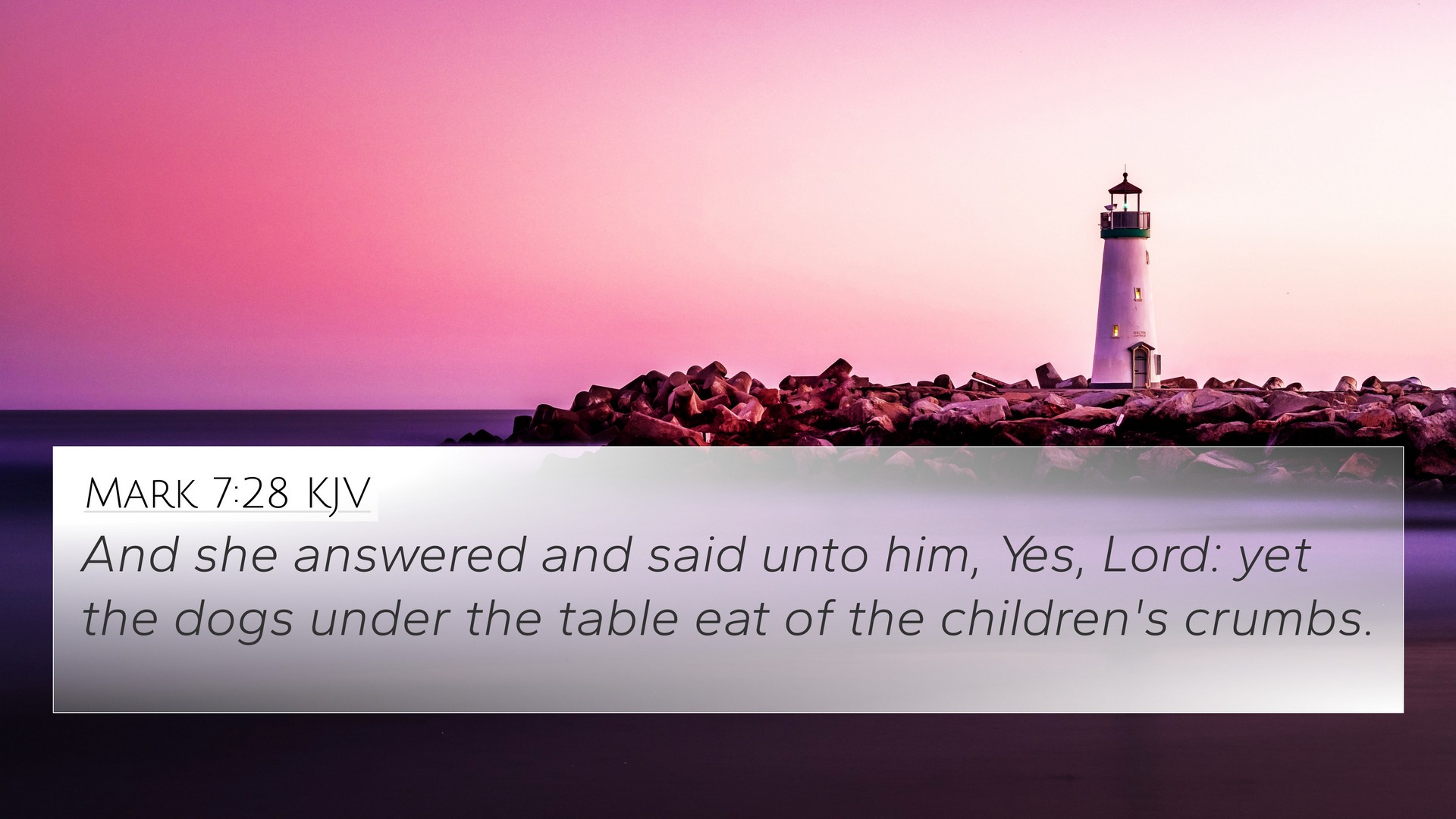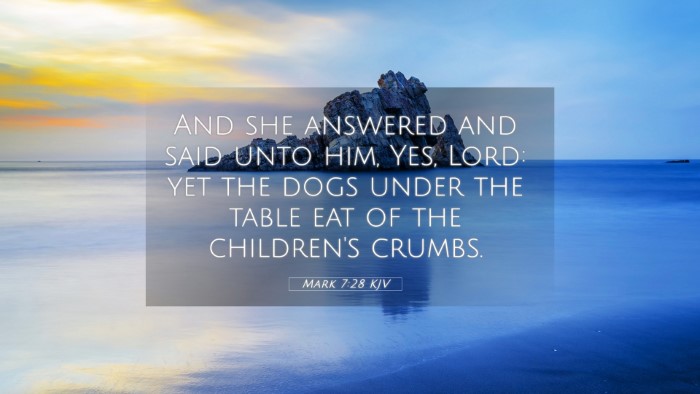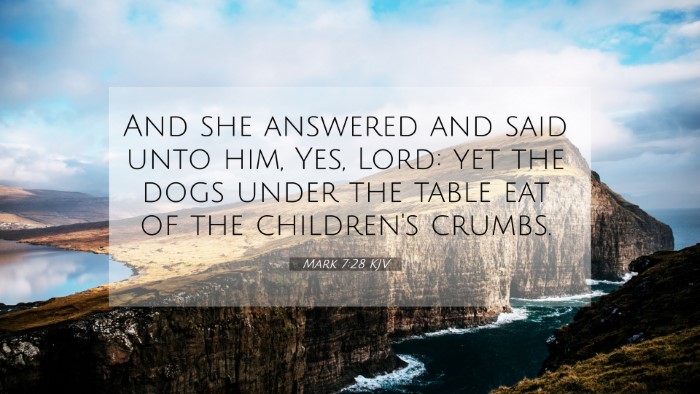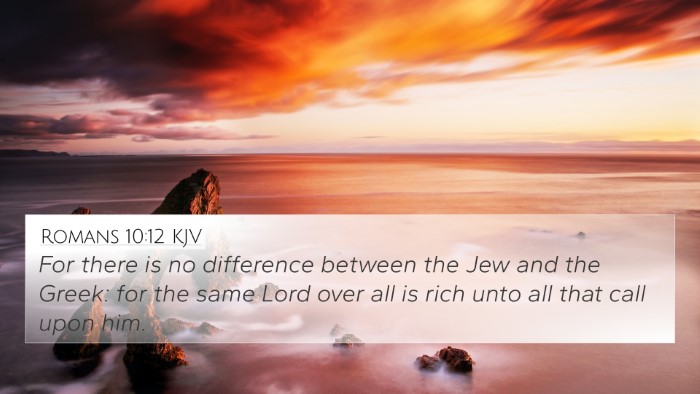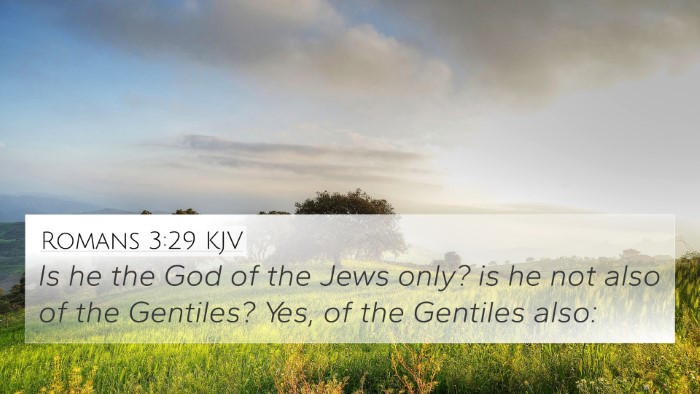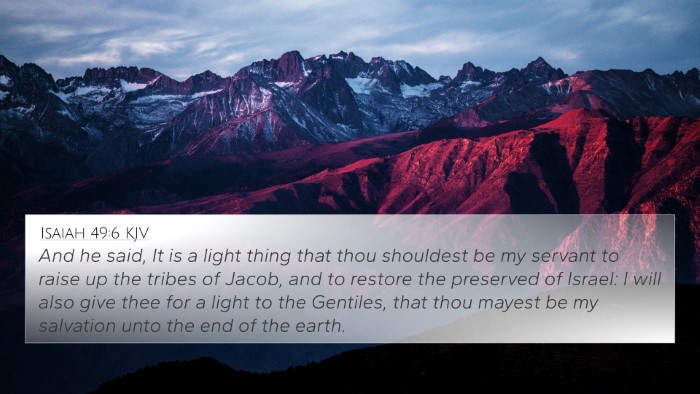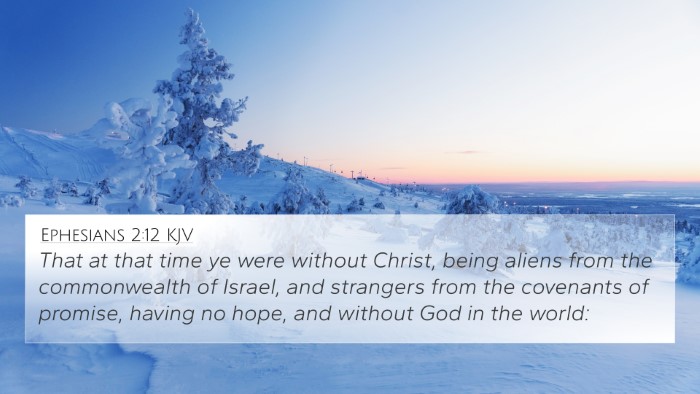Understanding Mark 7:28
Mark 7:28 (KJV): "And she answered and said unto him, Yes, Lord: yet the dogs under the table eat of the children’s crumbs."
Contextual Background
The verse comes from a narrative involving a Syrophoenician woman who seeks healing for her daughter possessed by an unclean spirit. In this interaction, Jesus initially appears to rebuff her request, emphasizing His mission to the Israelites. However, the woman's clever reply demonstrates her faith and understanding of Jesus' grace.
Commentary Insights
-
Matthew Henry's Commentary:
Henry emphasizes the woman's humility and faith. Despite being a Gentile, she recognizes Jesus' authority and is undeterred by His initial response. Her persistence and insight illustrate a profound understanding of God's generosity that extends beyond Israel.
-
Albert Barnes' Notes:
Barnes highlights the progressive revelation of faith. The woman accepts Jesus’ metaphor of “dogs” with grace, implying that even those on the outskirts of Israel can receive His blessings. This interaction signifies the expanding scope of Jesus' ministry to include Gentiles.
-
Adam Clarke's Commentary:
Clarke notes the cultural implications of the term “dogs.” He points out that the woman’s clever acknowledgment of her place in the hierarchy does not diminish her faith. Instead, she cleverly turns Jesus’ words to affirm her belief in His mercy.
Thematic Connections
The verse presents themes of faith, humility, and the inclusion of all peoples in God’s plan, which resonates throughout the Bible. This allows for a deeper analysis of scriptural cross-referencing.
Cross-References
- Matthew 15:27: The same story is recounted in Matthew, reinforcing the woman’s response to Jesus.
- Isaiah 49:6: “I will also give you for a light to the Gentiles, that you may be my salvation unto the end of the earth.” This prophecy indicates God's plan for the Gentiles.
- John 10:16: Jesus mentions having other sheep that are not of this fold, indicating the inclusion of all believers.
- Romans 1:16: Paul asserts that the gospel is for everyone, first for the Jew, then for the Gentile, highlighting the universal reach of God’s promise.
- Ephesians 2:12-13: Refers to the Gentiles being brought near by the blood of Christ, reinforcing the message of acceptance and inclusion.
- Acts 10:34-35: Peter acknowledges that God shows no favoritism, demonstrating that righteousness is available to all who believe.
- Galatians 3:28: Emphasizes unity in Christ among all believers, regardless of their background.
Practical Application
This verse encourages believers to pursue faith with humility and boldness. It invites reflection on the nature of God's love and how it transcends cultural and social barriers. Readers can consider how this message can affect their personal understanding and relationships.
SEO Keywords Integration
By exploring Mark 7:28, readers can discover valuable Bible verse cross-references that illuminate connections between Bible verses. This verse serves as a bridge in linking Bible scriptures across both the New Testament and the prophetic teachings of the Old Testament.
The dialogue between the Gentile woman and Jesus not only highlights a comparative Bible verse analysis of faith but also opens discussions about thematic Bible verse connections around humility in approaching God. Such Bible verse parallels reveal the gospel's universal implications.
Utilizing tools for Bible cross-referencing like a Bible concordance can deepen one's understanding of Mark 7:28, providing a rich ground for cross-reference Bible study. Engaging with inter-Biblical dialogue through extensive references aids in grasping the fullness of Christ's mission to all humanity.
Further Study
To enhance your study of this verse, consider utilizing a Bible cross-reference guide or a comprehensive Bible cross-reference system. Delving into the implications of accepting God's grace as illustrated in this narrative can result in spiritual insight and growth.
